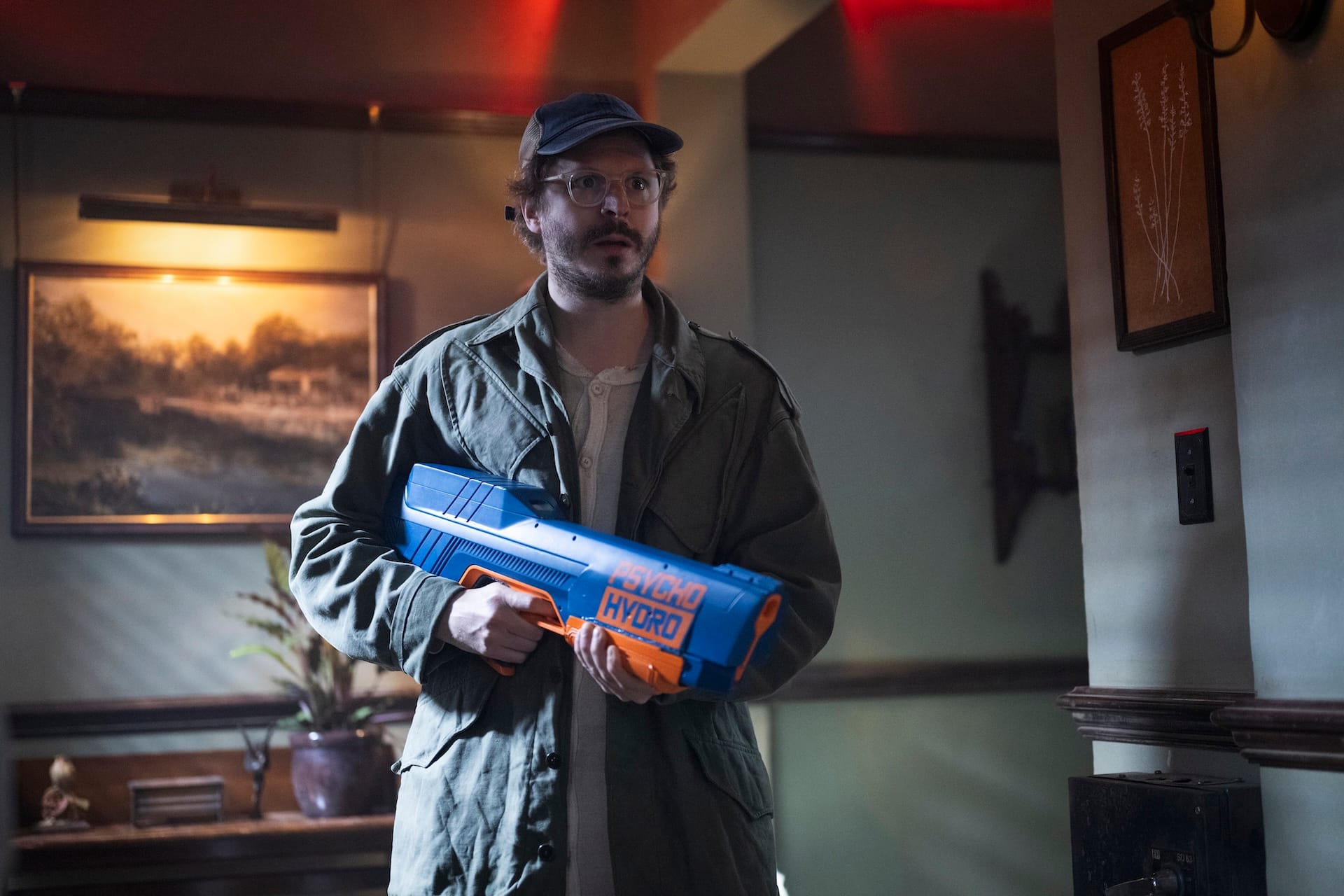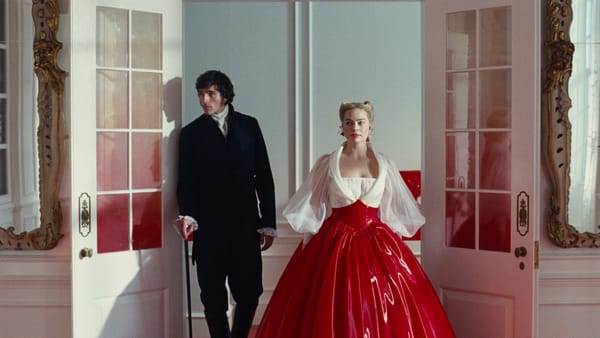‘The Running Man’ Offers Frictionless Blockbuster Thrills
Never has director Edgar Wright made a film that felt so anonymous and ill-suited to his gifts.

We’re in a boom time of Stephen King adaptations. This year alone has seen adaptations of The Life of Chuck, The Long Walk, The Monkey, The Institute, a prequel series for It, and now a new adaptation of The Running Man (originally published under King’s pseudonym, Richard Bachman). But not every director is suited to take on King, and Edgar Wright, in his first adaptation since Scott Pilgrim vs. The World, has his sensibilities collide with the author’s. Although Wright’s movie is more faithful to the plot than the 1987 Arnold Schwarzenegger version, the filmmaker can’t fully grapple with the unrelenting darkness at the core of the story. Wright’s movie is one that constantly feels at war with itself as the bleakness of the narrative smashes against Wright’s jocularity and effervescence. At his best, Wright has been able to find the darker, more dramatic beats inside a pop-culture confection. But trying to find the lightness in a dystopian future leaves The Running Man devoid of either Wright or King’s personality.
Ben Richards (Glen Powell) was blacklisted from work for trying to unionize, and now his two-year-old daughter is dying from the flu. To get money for the care she needs and pull his family out of the slums, Richards heads down to The Network to try out for one of their sadistic game shows. He hopes that it will be one of the lesser games that can net him enough cash to get his daughter to a real doctor, but instead, he’s selected for The Running Man by venal, smarmy producer Dan Killian (Josh Brolin). The game sends Ben on the run for 30 days. The longer he survives, the more cash he receives. The catch is that in a constant surveillance state, everyone can record and report him or even try to take the bounty themselves. As Ben uses all his wits to keep going, he slowly begins to understand that the game is rigged, and he’ll have to take control of the narrative.
King’s story leans hard into the bleakness of this future, making it like 1984 with car chases or like this past summer’s The Long Walk. It’s not meant to sparkle, but to erode, and hammer home not only the deprivation of the poor, but the callousness of the wealthy. That was never going to be a blockbuster movie (compare the reported $20 million budget of The Long Walk to the $110 million for The Running Man), and I can understand Wright and co-writer Michael Bacall trying to find places where they can ease up. The most obvious and the best place is with Ben’s character, taking him from a mean stoic to a heroic everyman. Powell once again shows he’s a movie star waiting for the right franchise to make him a household name, and his innate charisma goes a long way in keeping us invested in Ben’s journey.
However, everywhere else, the need to lighten the mood only creates dissonance with the larger darkness in the world. It’s a movie that can only glance at the broad inequities before returning to Wright’s comfort zone of action-comedy. For example, in a scene where Ben meets up with the rebellious Elton (Michael Cera) for help, the movie is fairly faithful to the book in that Elton has a mentally ill mother and there’s a loneliness at the center of his life that compels him to help Ben and rebel against the system. But that sparse writing conflicts with Wright’s desire for packed visuals and action, so Elton has (for some reason) a slide show ready to go depicting his tragic past, and when the cops come in, he goes full Home Alone, showing off how his rigged house is primed to kill and injure.

These kinds of slick set pieces make Wright’s approach feel far more in line with the villainous Network than the underdog Ben. Lip service is paid towards those in the slums, but the movie invests heavily in using violence to entertain without ever seeking to indict the audience in the joy we take from the bloodlust. The Running Man wants to have it both ways, lambasting slick entertainment that dulls the masses while carefully choreographing its carnage and mayhem. With Wright at the helm, you get an above-average action-comedy experience, but one that’s as soulless as other actioner remakes like RoboCop and Total Recall.
For a director as distinctive as Wright, the most astonishing aspect of The Running Man is how he almost disappears completely. Rather than channeling the material like he did with Scott Pilgrim, he’s always fighting against it, looking for the joke or the thrill when the plot demands a grittier approach. Perhaps there was no way to get there in $110 million blockbuster, but the problem also stems from trying to stay true to King’s plot while ignoring how that plot informs tone. Ben’s journey is about both seeing hardship and conveying it to those who are unaware, and none of that connects in the movie. When he encounters a wealthy woman (Emilia Jones), she flips to his side in the span of a couple minutes. No relationship has time to be earned or conflicted because we have to get on to the next set piece.
Even as a piece of social commentary, The Running Man is mostly toothless. Wright and Bacall put forward their concerns about the Internet controlling information and the rise of deepfakes, as The Network can make Ben say and do things without even needing editing tricks, but once again, this just falls back into the film’s central hypocrisy of chastising hollow entertainment while eluding any dramatic weight. Like The Network, Wright wants to get to the most entertaining bits, and real hardships are an inconvenient obstacle. The movie upholds VHS tapes and zines as ways to get back to honest communication, but that feels as silly and simplistic as the film’s solution to turn off the Internet because it’s feeding you lies.
Perhaps Wright felt that, like Ben, he could use the masters’ tools against them, and sneak in a sly social satire through a blockbuster feature. But to do that within the framework of this narrative requires a harder edge than the director can muster, whether through his own inclinations or through studio notes (the ending, in particular, feels hastily reshot). This makes The Running Man as vapid and unsatisfying as the programming The Network produces. Both Wright and King became popular because their works surprised audiences and kept them on their toes. It’s disheartening to see their collaboration amount to little more than hollow studio product.
Matt Goldberg is a film critic who lives and works in Atlanta. If you enjoyed this review, check out his newsletter Commentary Track.



